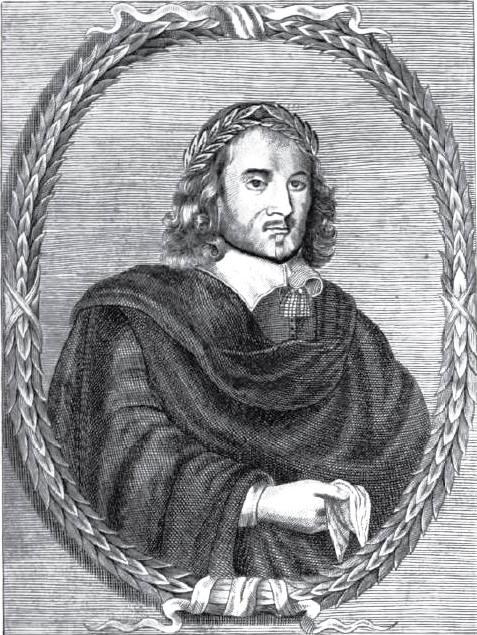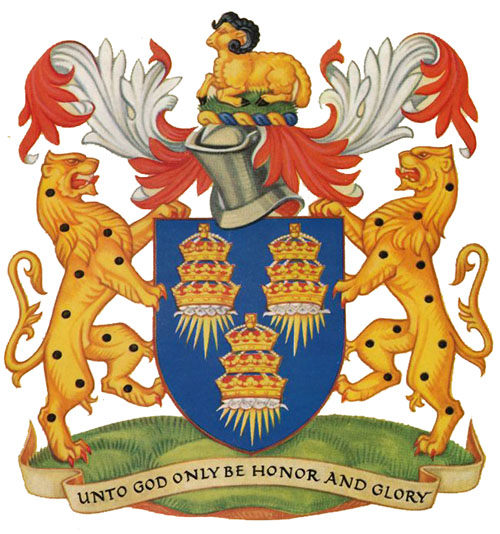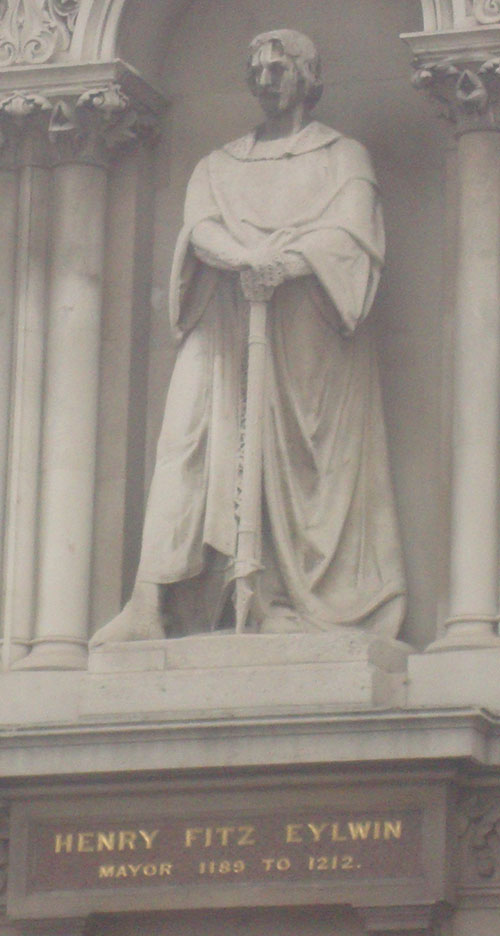This guest post by LH member Tracey Hill was first published in London Historians Members’ Newsletter of November 2014.
In the early 1620s Thomas Middleton’s profile in London, both on and off the stage, was at its height. His run of civic employments was consolidated when he was appointed the first paid Chronologer of the City of London on 6th September 1620. The commencement of Middleton’s post as City Chronologer was marked by the publication in 1621 of a series of commissioned civic entertainments that took place between Easter 1620 and Easter 1621, entitled Honorable Entertainments compos’de for the Seruice of this Noble Cittie, comprising ten separate entertainments.

Thomas Middleton (1580 – 1627)
Although his appointment as City Chronologer was a token of the esteem in which Middleton was held in civic circles, his new role came during a run of bad luck for the City and his initial commissions during the 1620-21 period were all problematic. Honorable Entertainments may, on the face of it, have been a wholly suitable way for the City Chronologer to appear in print, but some of the pieces in this book and in other works in this period have an edgy take on the civic transitions of 1620-21.
The second entertainment in the collection marked the termination of William Cockayne’s mayoralty on the day before the Haberdasher Francis Jones’s inauguration in 1620. However, in contrast to the usual joy at the arrival of a new Lord Mayor, this unprecedented ‘sad Pageant’ represents the end of Cockayne’s term of office as a funeral where ‘all seem to mourne’. It seems the very year has died: there is a ‘Last Will and Testament of 1620’, where Cockayne’s unnamed ‘Successor’ is bequeathed ‘all my good wishes, paines, labours and reformations’. The piece concludes with an ‘epitaph’ bemoaning the end of ‘a Yeare of goodness, and a Yeare of right’. As well as reminding Jones (in a move that will come back badly on the City, as we’ll see) of the ‘bounty fayre’ he will expected to provide as Lord Mayor, the first entertainment of Jones’s term is addressed primarily to the Haberdashers’ Company. Of Jones himself, Middleton simply states, with a distinct absence of enthusiasm, ‘I presume his goodness will requite’ the generosity of his Company. Any ‘honour’ that pertains to Jones in this work is merely ‘borrowed’ from the Haberdashers.
Eight of the ten entertainments in this collection were presented at Jones’s house. The lack of confidence in Jones signalled in Honorable Entertainments was more than borne out by events. The christmas entertainment evokes Jones’s house as ‘Bounties pallace/ Where euery Cup ha’s his full Ballace’, where ‘sparkling Liquors’ abound and where ‘Cellar, Hall [and] Larder’ are ‘Iouiall’ and ‘blithe’. Despite Middleton’s citation of ‘th’Abundant welcome yon’d Kind Lord affords’, as it turned out, Jones could not afford it and absconded just before his term of office expired. The keen seventeenth-century letter writer John Chamberlain recorded that ‘the night before he should have accompanied his successor to Westminster [Jones] did sgombrare [clear out], conveying all of worth out of his house, and he and his wife into some secret corner of the country’. Contrary to usual practice Jones was ‘excused’ due to an alleged ‘sudden infirmity’ when his successor took his mayoral oath at Westminster in 1621.
The Recorder of London Sir Heneage Finch was responsible for this public negotiation of Jones’s flit. There may be a deliberate irony in his ambiguous remarks in the same speech that Jones had ‘willingly’ laid down the burden of office and that Jones ‘cannot give a greater testimony of him[self] than his meane estimation of him selfe’. In pointed contrast, his successor Edward Barkham’s ‘greate bounty and hospitallity … feastes and entertainments’ were highlighted at the equivalent ceremony in 1621. On passing on the mayoralty to Peter Proby in October 1622 Barkham was given a testimonial by Finch which stated that, unlike his predecessor, he had performed the role with ‘dilligence from the first [day] of the [mayoral] yeare to the last’.
These words of praise notwithstanding, Barkham’s rise to the City’s highest office had not been straightforward either. To take the office he had to ‘translate’ from the Leathersellers’ Company to one of the Great Twelve. Thus the backdrop to the 1621 mayoral inauguration was no more auspicious than the termination of his predecessor. Barkham’s process of translation to the Drapers began with an approach to the Company in July 1621. The request was rebuffed for some months: there were prolonged negotiations and the matter was only resolved on the intervention of the Privy Council.
Barkham’s putative membership was discussed by the Drapers’ Court four times in July 1621. For a while the Company were adamant that they were would not accept him and agreed to convey to the Court of Aldermen their ‘absolute denyall’ of Barkham’s admission, demonstrating the strength of feeling against this enforced admission. Later in July the Company remained intransigent, reiterating ‘the denyall of the generality of this Companie in acceptinge of Mr Alderman Barkeham’. In their fourth meeting there was only one item on the agenda. They were ‘altogether unwilling and unable’ to accept the financial charge consequent on having another mayoral inauguration to support. However, their position had shifted: they were no longer refusing entry to Barkham per se (the phrase ‘absolute denyall’ no longer features), but rather asking the Court of Aldermen to excuse them the costs. The final discussion took place in August, within weeks of the election of the new Lord Mayor on Michaelmas Day. Once more the Drapers wished to be excused the costs of the ‘triumphes’, adding the argument that they were trying to avoid any complaints and any ‘disgrace’ to the City. Indeed, they protested against the cost to the end, but in the face of the forces against them the Company had finally to capitulate, and Barkham–by then ‘Maior elect’–was duly admitted to the membership by translation from the Leathersellers in the nick of time in early October 1621.

Coat of arms of the Drapers’ Company.
Close scrutiny of that year’s mayoral Show, The sunne in Aries, reveals clues about the considerable strain and prolonged debate of Barkham’s translation. A number of times in the text the word ‘costly’ is employed, which, although conventional, in this context could be seen to gesture towards the Drapers’ concerns about the expense of the inauguration. The relationship between the new Lord Mayor and his Company–in particular, their role in funding the Show–is central to the valedictory speech given at the very end of the Show in a way that could be a veiled commentary on the circumstances.
This speech is intended as a ‘noble Demonstation of [Barkham’s] worthy Fraternities Affection’. The Drapers’ ‘Loue’ for Barkham is likened to the sun breaking through after ‘a great Ecclipse’. It is certainly possible to interpret the now past ‘eclipse’ to the furore over Barkham’s enforced translation. The Drapers’ affection, Fame declares, ‘is showne/ With a Content past Expectation … A Care that ha’s [sic] beene comely, and a Cost/ That ha’s beene Decent’ (my emphasis). The Show itself is said to ‘clearly’ demonstrate how ‘great’ the Drapers’ love is, and the ‘Cost’ is (finally) ‘requited’ by Barkham’s accession to the mayoralty. Middleton’s text strives to incorporate Barkham into the Company, to remind him of the expense they have been put to and attempts to smooth over the recent controversy about their reluctance to pay for the very event that is taking place.
However, references to Barkham are relatively scant and recent holders of civic office are compared unfavourably to their predecessors. Whereas past Drapers were ‘Colledge Founders’, ‘Temple-Beautifiers’ and ‘Erecters … of Granaries for the Poore’, now these granaries are ‘conuerted to some Rich mens Store’. Naturally, there is no suggestion that Barkham is one of those avaricious men but a poor light is cast upon the current civic oligarchy. There is also an oblique reference to Barkham’s unusual route to the mayoralty. Sir Richard Pipe, Lord Mayor in 1578, is mentioned solely because ‘being Free of the Leathersellers, [he] was also from them translated to the Ancient and Honorable Society of Drapers’. Pipe’s translation was a precedent that legitimated Barkham’s troubled move to the Drapers, but given the strong opposition the latter had generated, one wonders why Middleton thought it necessary to mention translation from the Leathersellers at all.
Ultimately, the Drapers had had to accept Barkham and the City had to put the controversy behind it and move on. All the same, Recorder Finch’s speech when Barkham took his oath at Westminster strikes a sterner note than usual. ‘Magistrates are not sett in Authority for their owne sakes’, Finch proclaimed, ‘but for the people’. The office of Lord Mayor, he emphasised, involved ‘a number of cares’ which ‘cannot [be] putt off with [the Lord Mayor’s] clothes now layed under his pillow’, and those who take on high office ought to ‘consider well the weight of government’.
Translation to one of the Great Twelve livery companies, as we have seen, was indeed a more serious business than donning a new suit of clothes. By 1622, however, the crisis was but a memory and Recorder Finch’s speech at the Exchequer when Peter Proby took his oath celebrates Barkham retrospectively for his acts of civic altruism such as endowing a new water conduit. This presentation of Barkham as a man of good deeds features elsewhere too. During his year of office Barkham played an important role in the building of a new church on the site of of what had been the priory church of the Holy Trinity, Aldgate. The building of the church, the 1633 edition of John Stow’s The Survey of London relates,
‘proceeded on with good and prosperous successe, to the no meane honour and commendation of the Lord Maior then being, Sir Edward Barkham by name, the Court of Aldermen, and state of this famous City, by whose good meanes it is made a very beautifull and comely Parish Church’.
Barkham ‘himselfe undertooke, and effected at his owne charge’ the ‘maine and great East light in the Chancell’, and his contribution was commemorated, appropriately enough, in a verse placed in the chancel of the church:
Barkham the Worthie,
whose immortall name,
Marble’s too weake to hold,
for this workes fame.
He never ceast
in industrie and care,
From ruines to
redeeme this House of Praier.
Somewhat ironically given the strong resistance to his translation, Barkham’s membership of the Drapers is highlighted in this monument; indeed, he is even linked to one of the City’s most esteemed figures, the first Lord Mayor of London, Henry Fitz-Alwin. The verse concludes:
This Cities first Lord Maior
lies buried here,
Fitz-Alwine,
of the Drapers Company,
And the Lord Maior,
whose fame now shines so cleere,
Barkham,
is of the same Society.

Henry Fitz-Alwin, commemorated on Holborn Viaduct.
Long-standing London Historians Member, Prof Tracey Hill is Head of English and Cultural Studies at Bath Spa University. Her research expertise is in the cultural history of early modern London, with a particular focus on civic pageantry. She is the author of Pageantry and Power: a cultural history of the early modern Lord Mayor’s Show (Manchester University Press 2010) and Anthony Munday and Civic Culture (Manchester University Press 2004) as well as of a number of articles and chapters in books.
A longer version of this article – “Ever obedient in his Studies”: Thomas Middleton and the City, c. 1621′, – appeared in The London Journal,42:2 (2017).